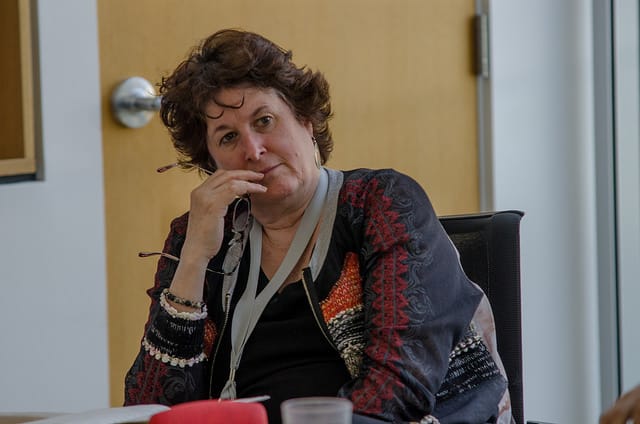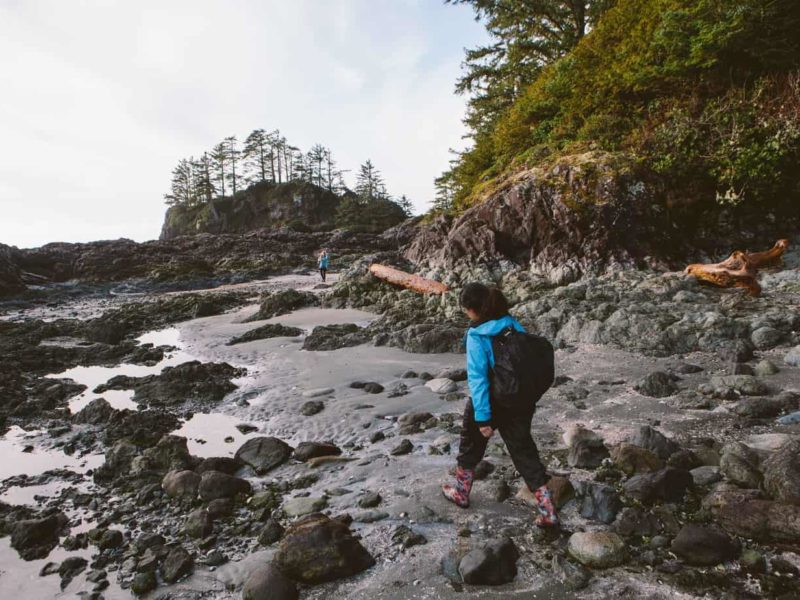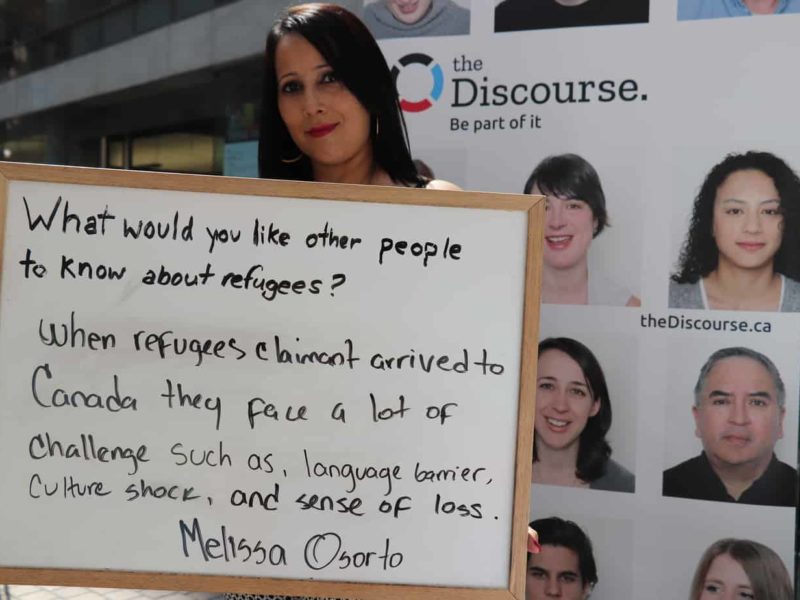
How well do you think Canada’s refugee system works? That’s the question my colleague Francesca Fionda and I are asking people across Canada as a part of our investigation into the Canadian refugee system. One thing that is missing from the conversation, according to refugees and settlement workers, is stories about refugees by refugees.
That’s why I was excited when I met Taiwo Afolabi, an artist, instructor and PhD candidate at the University of Victoria. He’s using theatre to help refugee and newcomer youth, as well as those born in Canada, share stories about integration, racism and related challenges on World Refugee Day in June.
“If we want things to change,” says Taiwo, “one of the ways is by enabling a safe space to be able to have those disturbing and unsettling conversations.” Art can create that space, he says.
He became interested in using theatre to address social issues and human rights as an undergraduate student at the University of Jos, in Nigeria, where he studied theatre during a “messy crisis” involving riots fueled by religious and ethnic tensions.
The experience led him to establish Theatre Emissary International, an organization in Nigeria that uses theatre to engage the public on issues such as gender equality and education, and create positive social change. Then, when Taiwo moved to Victoria in 2015 — the year Justin Trudeau pledged to welcome 25,000 Syrian refugees to Canada — he thought theatre could help Canadians have important conversations too. The Onion Theatre Project was born.
The project aims to “unpeel” the “different levels and layers” related to newcomer settlement, says Taiwo. “How do we understand and tease out our privileges? How do we build community?” he asks.
He’s uncovered some challenges in the process. Some immigrants experience racism and discrimination in the workplace, such as employers discounting their professional experience in their home countries. He’s also concerned about research that indicates privately sponsored refugees integrate better than government-assisted ones, and thinks we need to think about how to do better.
At The Discourse, we’re also aiming to spark meaningful dialogue on how Canada welcomes and integrates refugees. I’m going to stay in touch with Taiwo and hope to share some of the stories from his theatre project with you in the coming weeks. I’d also love to hear your thoughts and questions, and appreciate your help getting in touch with refugees who might like to share stories. You can help out by filling out this form or sending me an email.
Snapshot
 At the end of April, I attended the Generation SDG Summit, where 40 delegates from across Canada came together to explore how to get communities to take action on the United Nations Sustainable Development Goals.
At the end of April, I attended the Generation SDG Summit, where 40 delegates from across Canada came together to explore how to get communities to take action on the United Nations Sustainable Development Goals.
Many of them, including Karen Farbridge, who was mayor of Guelph for 11 years, told me storytelling and journalism have an important role to play. They said stories help people understand the challenges in their own community, so they can act from them and make it easier for them hold their elected representatives accountable.
Karen saw the impact of declining local news first hand. When she was first elected, the local media was well-resourced with many beat reporters who focused on local issues. They helped create a space for discussion on issues like waste, which led Guelph to become the first city in Canada with a curbside composting program, says Karen. She believes that as the local media shed reporters, coverage of local issues decreased, sustainability issues “really started to polarize the community” and it became harder to create space for conversations to help the community work through them.
ICYMI
Canada is unprepared to work towards the United Nations Sustainable Development Goals, according to a critical report released by Office of the Auditor General of Canada last month. The government doesn’t have a plan and it’s unclear which government department is going to take a lead. The government also doesn’t know how it will track progress and hasn’t made much effort to engage Canadians on the issue. To find out more, click here. Then, let me know if you have any ideas or follow-up questions you’d like me to explore in my coverage of sustainable development.[end]



